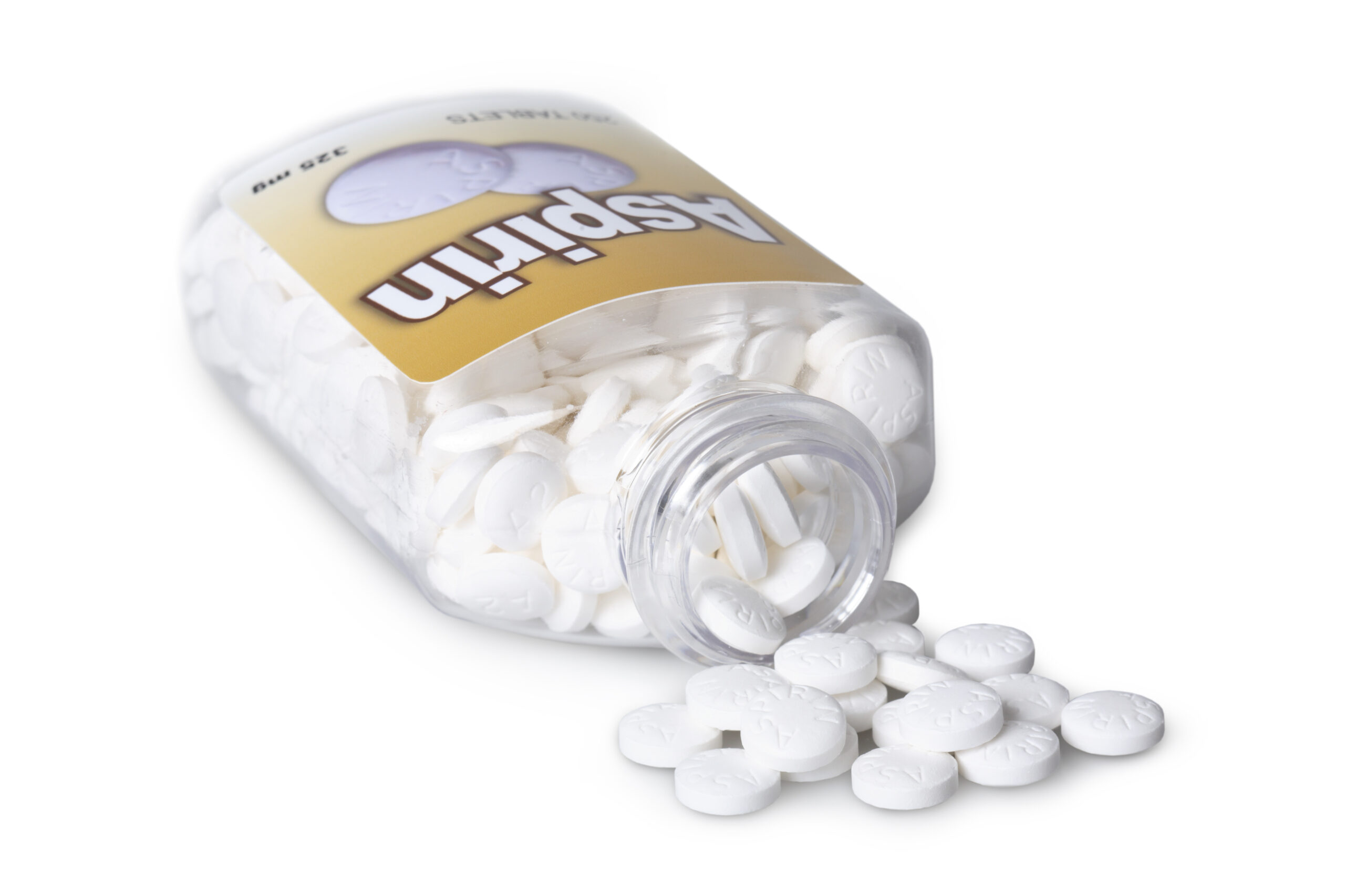Folks without a history of heart attacks or stroke may want to reconsider using aspirin as primary prevention for cardiovascular disease, says the Food and Drug Administration (FDA) in a new statement. “In fact, there are serious risks associated with the use of aspirin, including increased risk of bleeding in the stomach and brain, in situations where the benefit of aspirin for primary prevention has not been established,” the FDA said.
Primary prevention refers to prevention taken when there is no prior history of cardiovascular disease. The FDA says that aspirin is still recommended for people who have previously had a heart attack or stroke, as secondary prevention — measures taken to prevent further cardiovascular disease. “In patients who have had a cardiovascular event,” the FDA writes in a statement, “the known benefits of aspirin for secondary prevention outweigh the risk of bleeding.”
Of course, the FDA points out that the agency makes broad and regulatory decisions. Each patient is different and individuals should consult a health care provider to discuss their best treatment.
The statement comes after the FDA denied a request made by German company Bayer HealthCare. The company wanted to change their professional labeling of aspirin, and market it as a product for prevention for people with no history of cardiovascular disease.
The Food and Drug Administration, however, stated that several studies did not find much support in the claim that aspirin works as primary prevention, and they are still waiting on results from a clinical trial that is currently underway.
According to Bloomberg, a 2010 Scottish study published in the Journal of the American Medical Association found that aspirin as primary prevention didn’t help those who were asymptomatic, but had a high risk for cardiovascular disease. Bloomberg reported: “Higher-risk people had a similar number of attacks and strokes as participants taking placebo, the researchers said.”
However, Bayer is quick to remind folks that the FDA’s ruling does not change aspirin’s use as secondary prevention, if you have a history of cardiovascular disease.
For more information consult this FDA’s “Questions & Answers” section and consult your health care professional.

